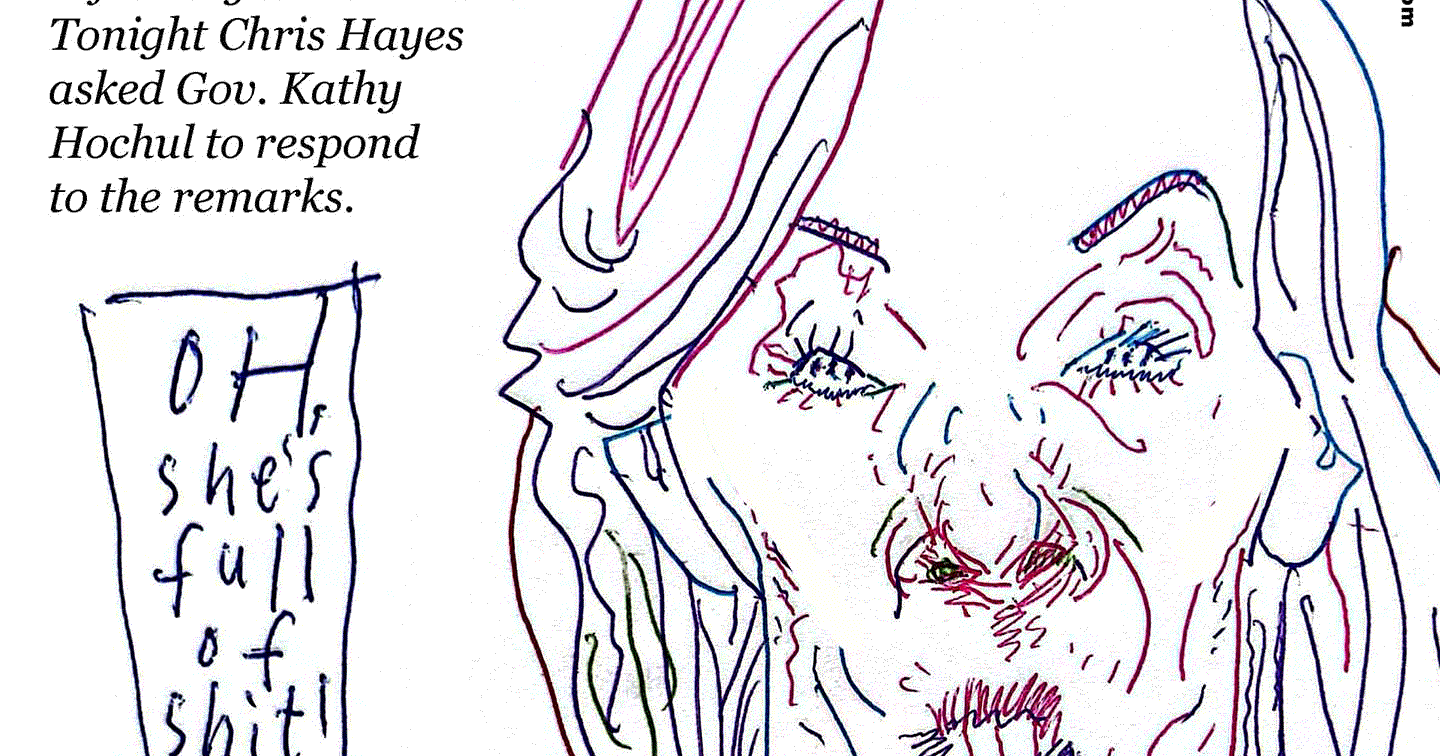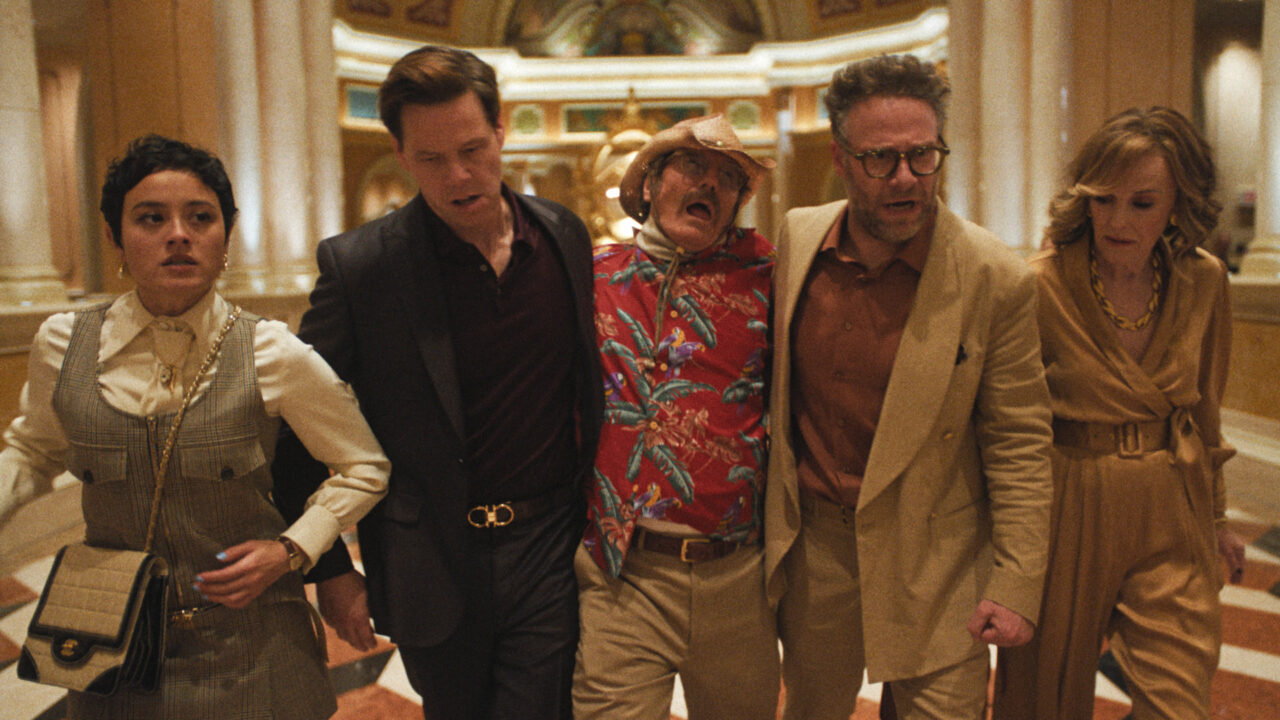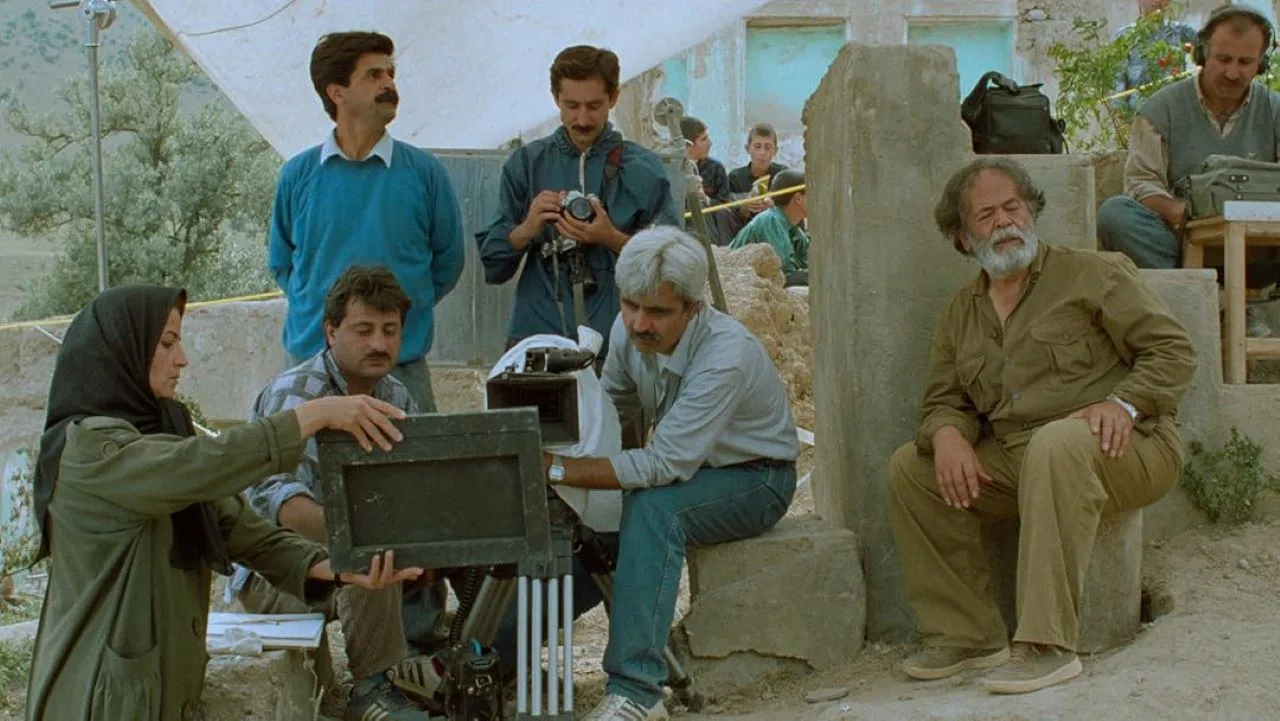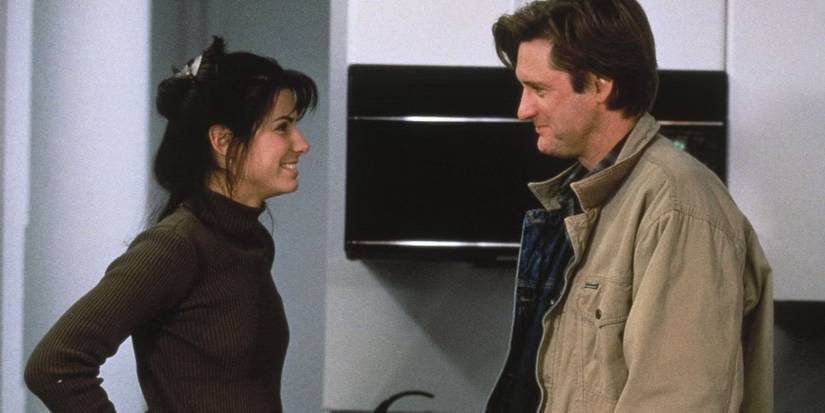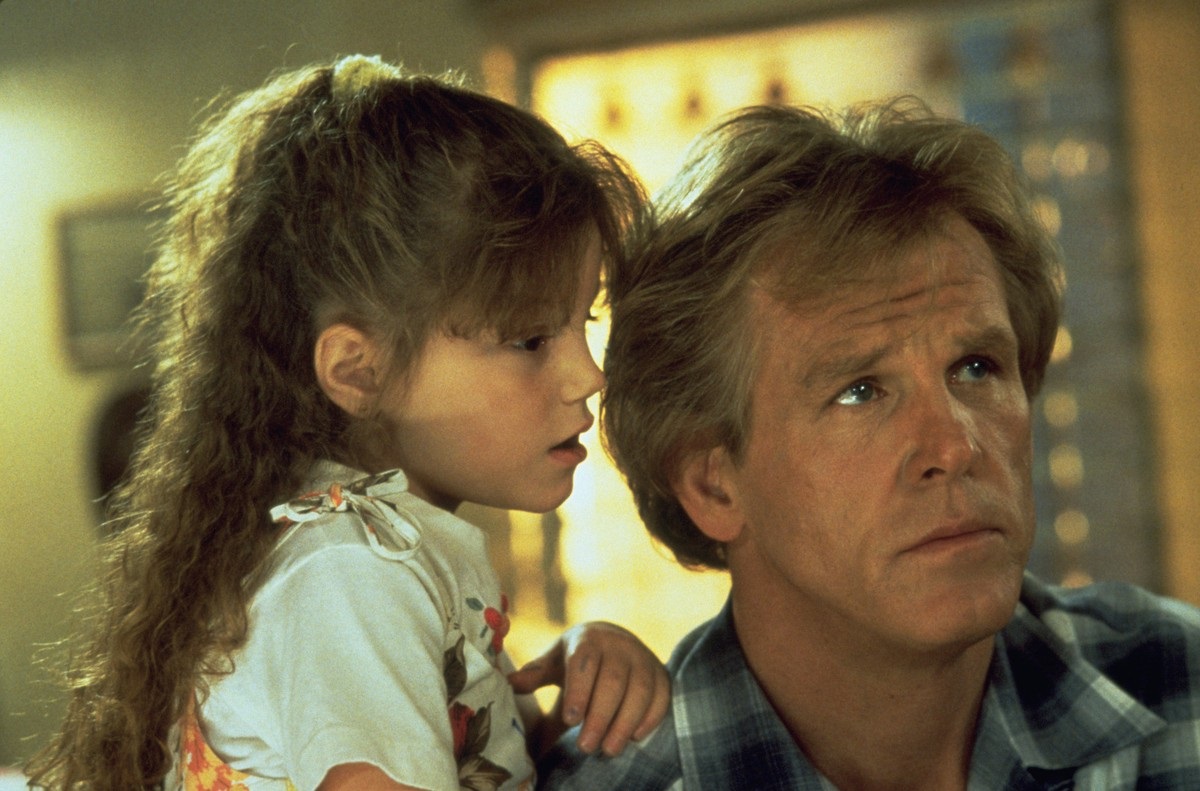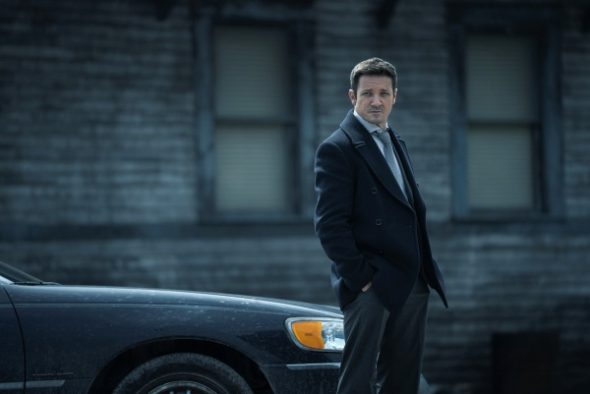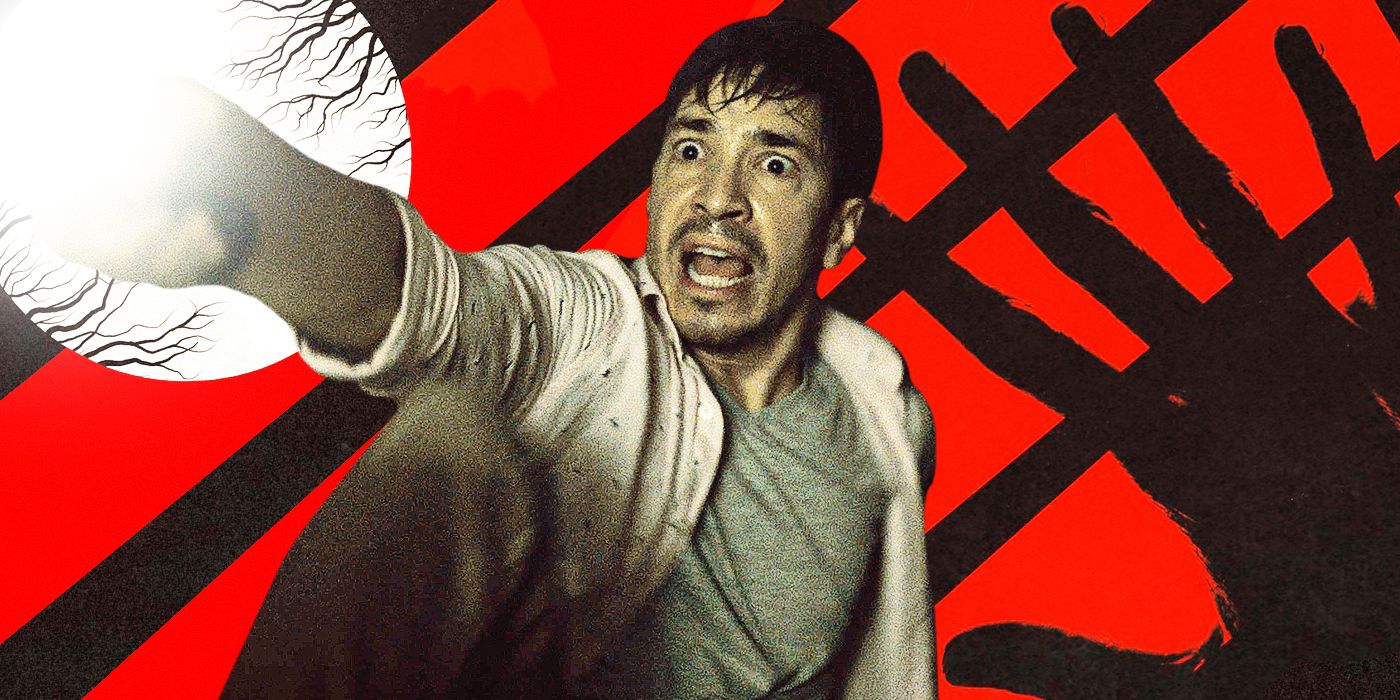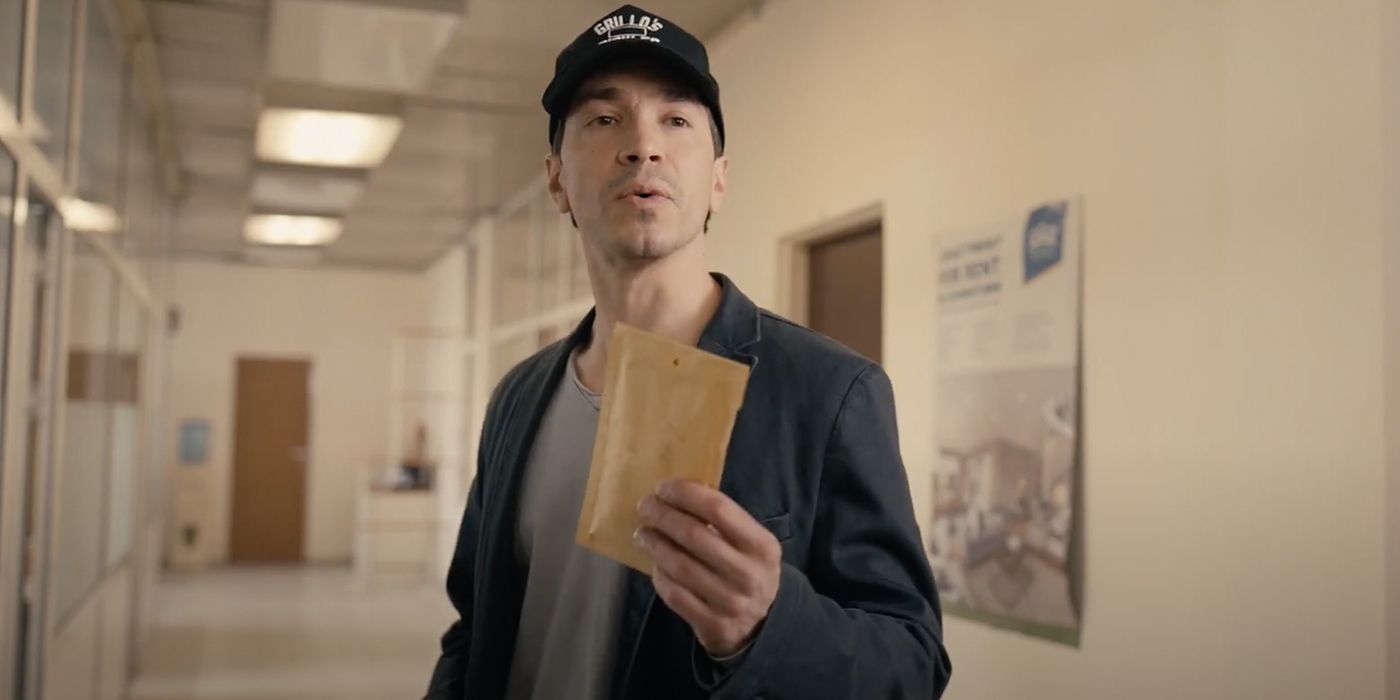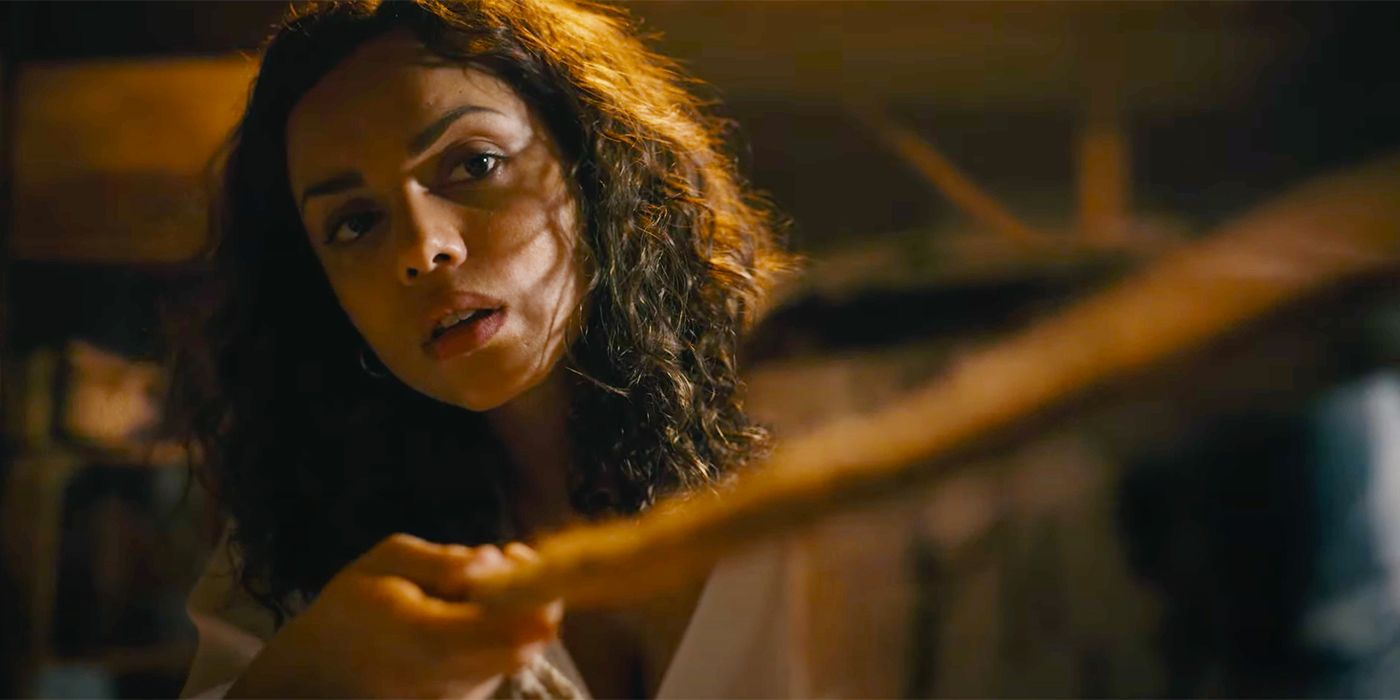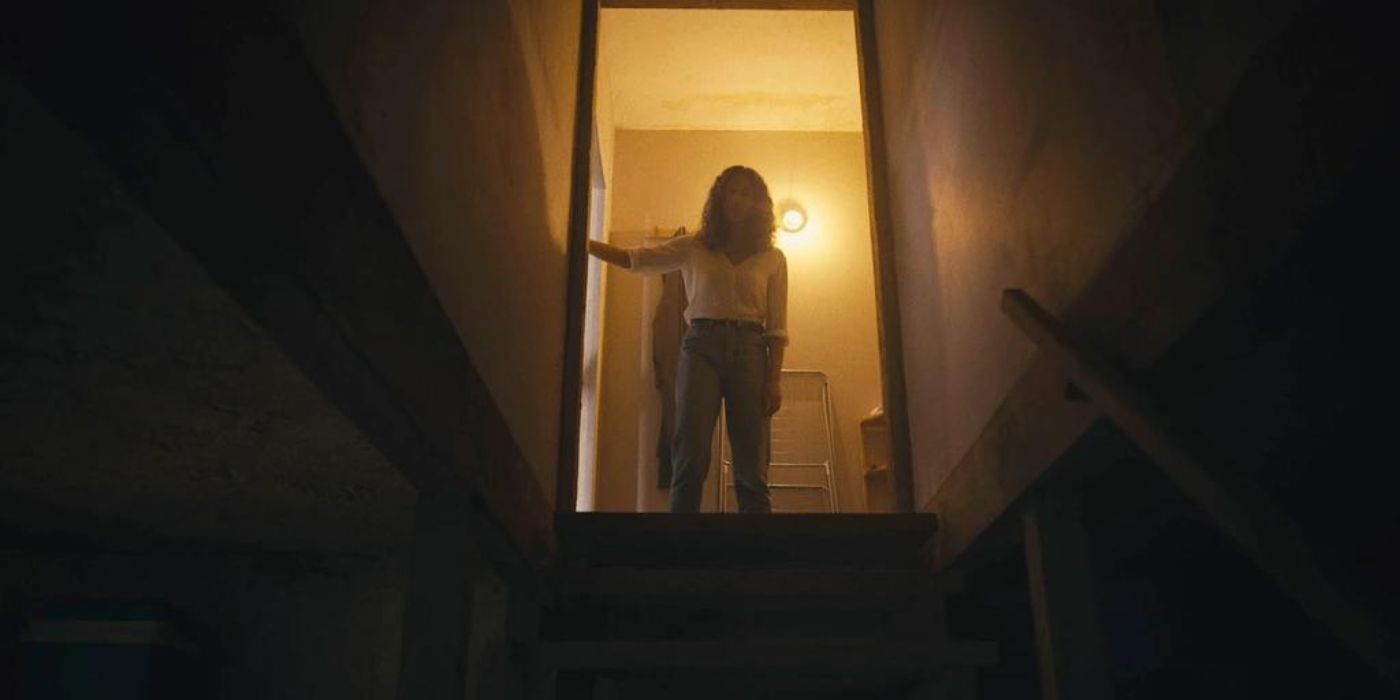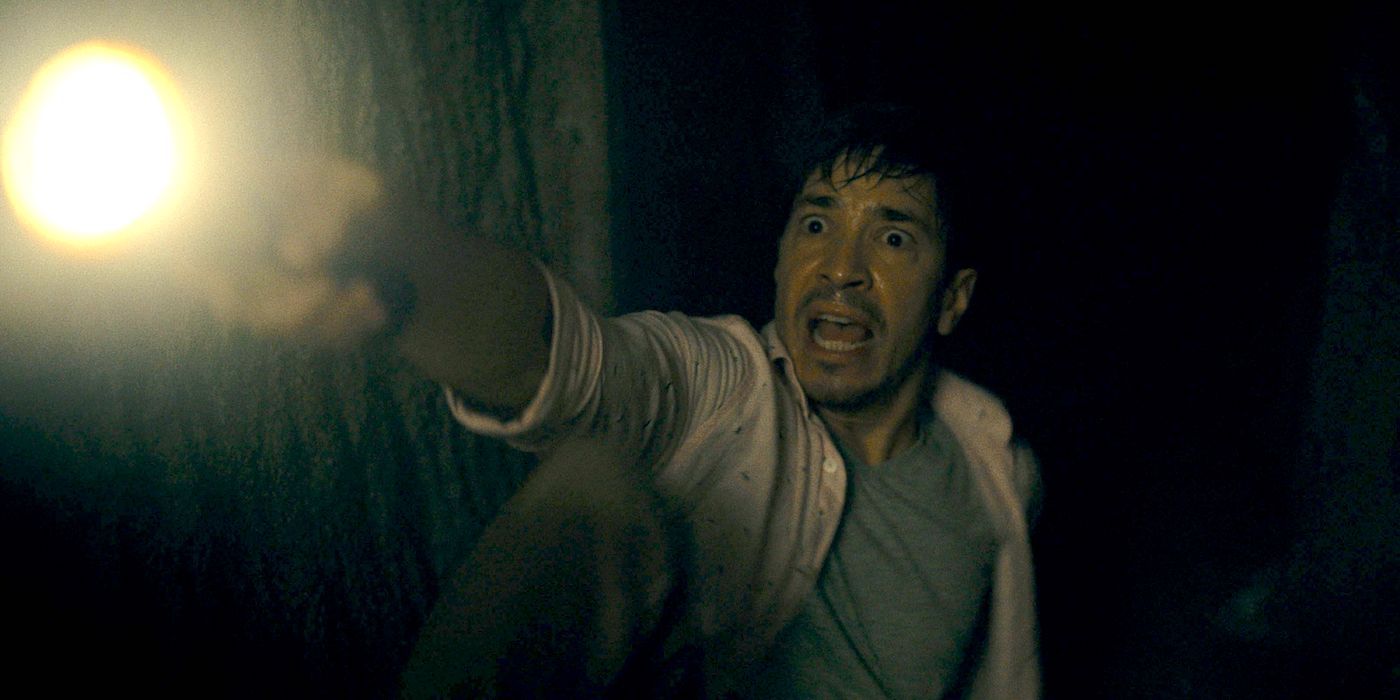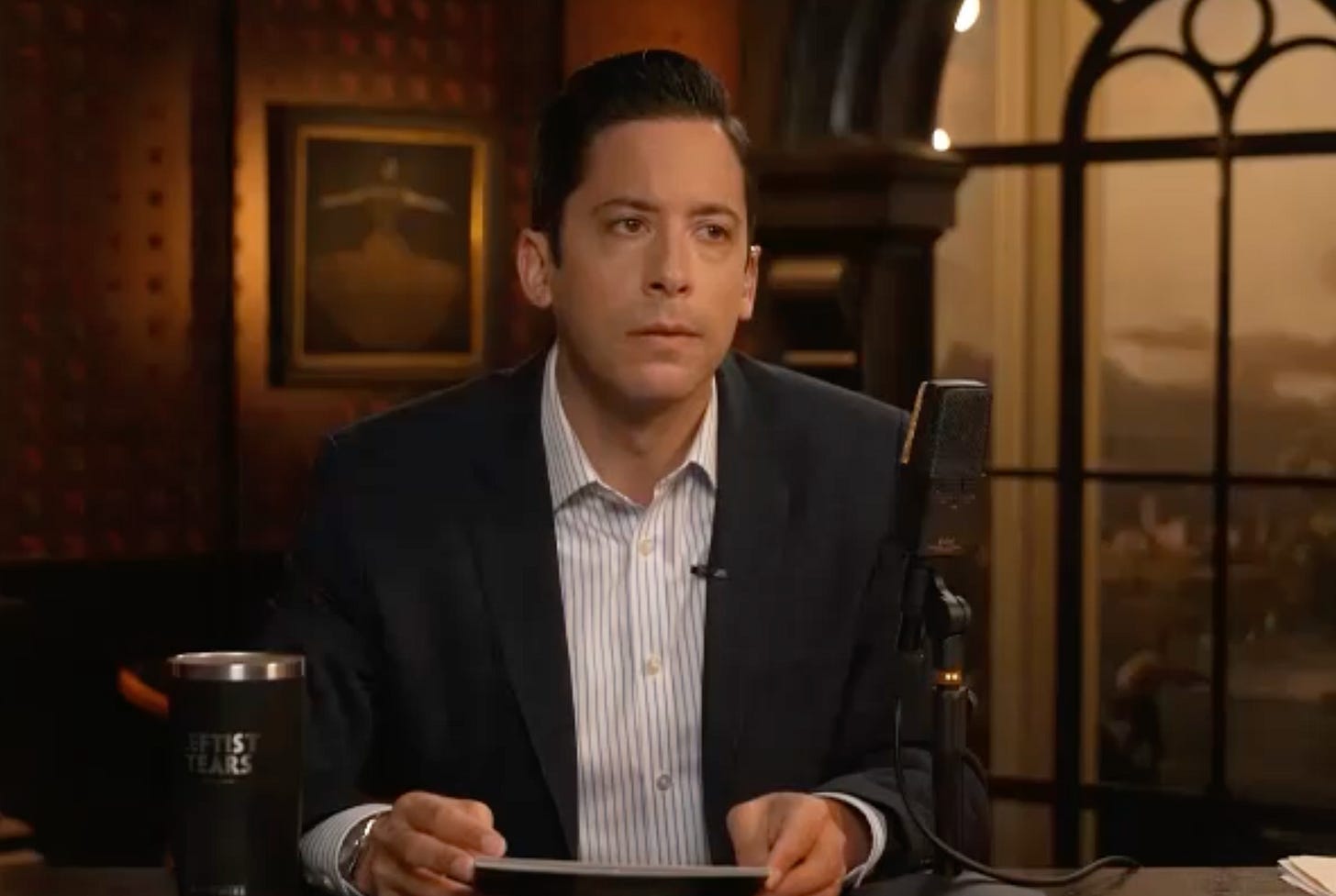[ad_1]
It’s a beloved trope to redeem the asshole character. To transform them from an absolutely despicable villain to a fan-favorite in a brilliant redemption arc that never fails to shock us all. We’ve seen this development happen in iconic characters such as Steve Harrington from Stranger Things, Severus Snape from Harry Potter, and Negan from The Walking Dead, to name a few. However, with all these sympathetic villains and redemption arcs out there, we need to ask ourselves: does every asshole genuinely deserve it? Barbarian answers this question with a resounding no.
The critically acclaimed film follows the story of Tess (Georgina Campbell), a young woman who discovers her Airbnb has been double-booked with a man, but unbeknownst to her, the house harbors a dark secret. To be fair, the film has more than its fair share of assholes — Frank (Richard Brake), the police officers, and even Keith (Bill Skarsgård) to some extent (seriously, who insists on looking at a creepy rape dungeon instead of getting the hell out of dodge?) However, our full focus here will be on AJ (Justin Long), arguably one of the most detestable assholes of modern horror.
Has AJ Been Unfairly Demonized?
When we’re first introduced to AJ, he seems like a happy-go-lucky kind of guy, singing along to the radio, enjoying life, and hey, you kind of already like him because, well, it’s Justin Long. Most horror fans already hold a fair bit of love for the actor. But his carefree persona is immediately dashed as AJ is met with accusations of sexual misconduct. AJ appears just as shocked as we, the audience, are by these claims. And with the way AJ vehemently denies these accusations and appears to be truly suffering from the so-called “slander,” we almost begin to feel bad for him. He’s clearly going to be one of the film’s main protagonists — maybe the claims truly are false? Barbarian sets our expectations to be that AJ will eventually be redeemed from the get-go. The trope is so common nowadays it’s fairly easy to pick up on. AJ is charming, funny, charismatic — and he’s Tess’ only hope in escaping the Mother. We need him to be the good guy. The savior.
However, at each corner, AJ’s perfectly curated persona begins to unravel. Even as he so sincerely tries to convince us (and himself) that he’s the good guy, we see the cracks. After all this time he’s spent trying to convince everyone of his innocence, he admits to his friend that he did have sexual relations with his co-worker, only it took her some “convincing,” something that he seems to laugh off. It’s clear that AJ took his coercion as consent. And he even addresses his friend using the “F” slur as a silly nickname. AJ goes from asshole to straight-up reprehensible — the kind of character that doesn’t even deserve redemption at this point. He’s too far gone.
His asshole-ish behavior becomes comical at this point, and we almost start to feel a bit stupid for ever expecting someone like him to be redeemable. The man is so driven by greed, his only thought upon discovering the creepy sex dungeon under his house is “score, more square footage!” The only modicum of disgust he exhibits is when he sits on the stained mattress and realizes some filth seeped into his trousers. Greedy, vain, deplorable — AJ is by no measure the good guy he wants us to believe. And yet, as he too is captured by the Mother, he becomes the sole backup Tess has in this messed-up situation. He’s a villain forced into a hero’s role. It’s hard not to hope he may have a change in character.
AJ Has a Chance For Redemption
This idea of his redemption is furthered as AJ discovers Frank down in the dungeons. As we know, Frank was the owner of the house before AJ, a loathsome old serial rapist and the curator of the intricate dungeon tunnel system. It’s an important moment for AJ’s character to confront this man, to see the videotapes of the horrors Frank enacted upon countless women. He is understandably horrified, and this could have been a turning point for AJ’s redemption. A confrontation of his own crimes, to accept his guilt and shame over his actions. A revelation.
At this point in the film, AJ does seem to have taken some sort of turn. Though he does accidentally shoot Tess when she comes to save him, he helps her escape with him. He helps her all the way to the homeless man’s hideout and tries his best to tend to the wound he caused. To patch her up the same way he wishes to mend his own character flaws. While AJ is too far gone to be fully redeemable, we start to expect some sort of hero-sacrifice on his behalf. A moment of clarity where he realizes the enormity of his actions and tries his best to make amends. Like Steve Harrington taking the nail-bat to the Demogorgon. But AJ is no hero.
As Tess and AJ run to the top of the water tower to escape the Mother, we see the cogs turning in AJ’s mind. They are trapped; will this be the moment he redeems himself? But as much as we want AJ to change, as much as AJ himself wants to be the good guy, Barbarian proves there is no way to change who you are at the core. His nature overrides his hero fantasy and AJ behaves exactly like the scumbag he truly is inside. He sacrifices Tess to save his own hide, all the while insisting he is a good guy that made a bad choice. In his mind, he doesn’t deserve to die for someone else.
But Then You Realize AJ Could Never Change
The more you think on it, the more you come to realize AJ never changed and never could change. He is a textbook narcissist. Even as Tess lies groaning in pain after her fall off the water tower, AJ does little to help her. He only anxiously attempts to convince Tess that she slipped, and he couldn’t save her in time. His sense of self-importance and self-preservation outweigh any hope AJ had of being the good guy. His moment with Frank, one that could have been such a revelation for AJ, went right over his head. AJ has himself so well convinced that he’s a good person. AJ fell victim to the typical thought process of abusers — in his perspective, he and Frank have no similarities, he’s not some sick serial rapist who videotapes his abuse and lives in a dank dungeon, he’s simply a man that made a simple mistake. He is fundamentally unable to recognize that he and Frank, on some level, are the same. And because of this innate inability to accept any sort of responsibility, AJ proved himself irredeemable. Barbarian shows us that assholes are sometimes just that — assholes.
We spend the whole film waiting for AJ to be redeemed. But he never changes. Most abusers don’t. He spends the entire film convinced he’s the hero fighting back against the world. That his life, his world, his perspective, is the most important thing in need of saving. And that’s what’s truly terrifying.
[ad_2]
Original Source Link









